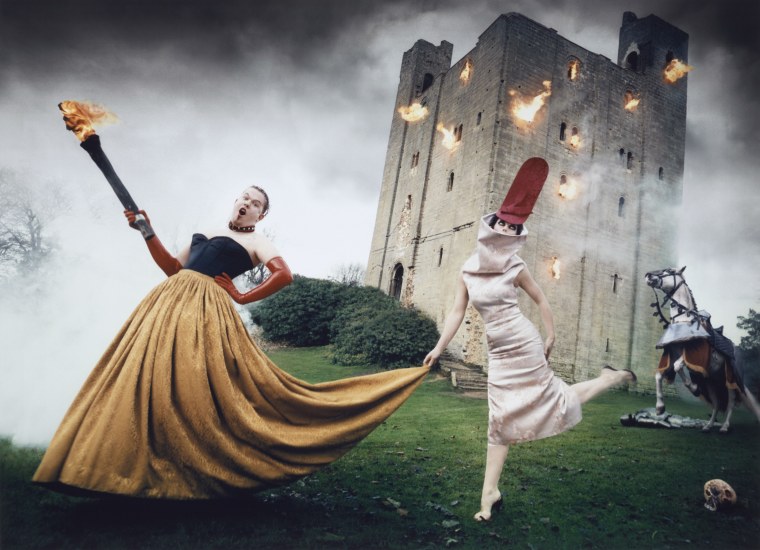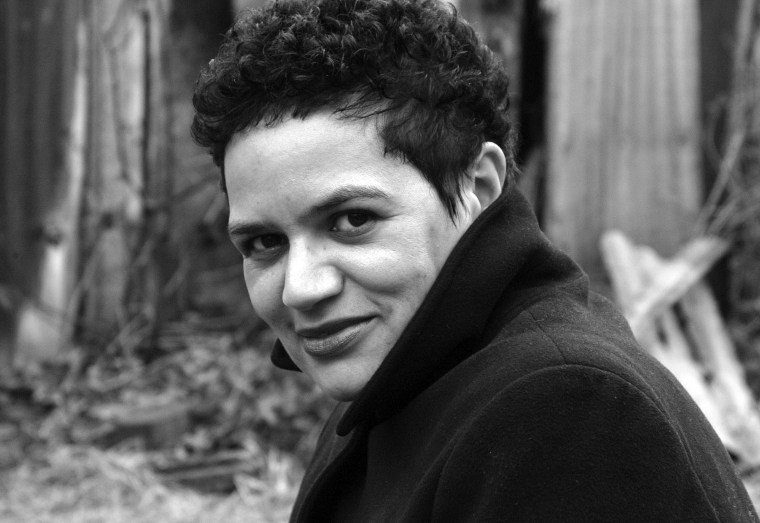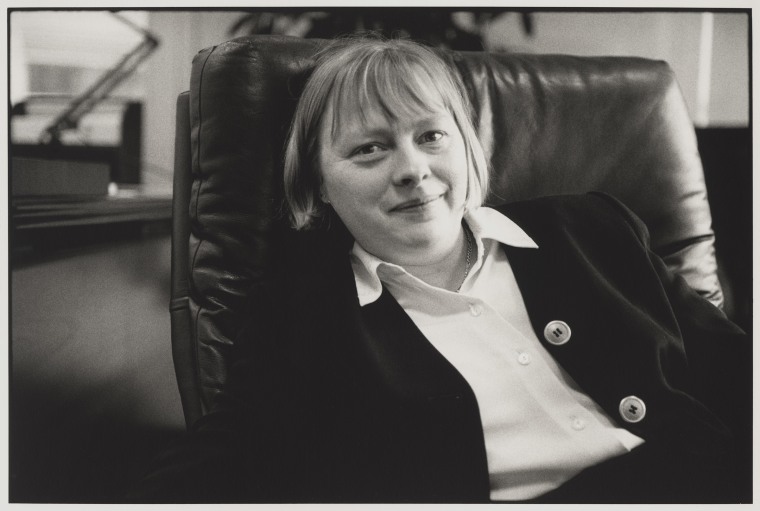The National Portrait Gallery in London has opened its collection to celebrate the history of lesbian, gay, bisexual and transgender rights in the UK, commemorating 50 years since Britain took its first step toward LGBTQ equality.

More than 150 portraits of LGBTQ figures from British culture -- spanning from Tudor times to the present day -- are paired with quotations exploring sexuality and gender identity, as well as discrimination, in a small display and an accompanying book, both titled “Speak its Name!”
Comprised of centuries-old paintings and contemporary photographs, including King James I, Virginia Woolf and fashion designer Alexander McQueen, the experiences and plight of being gay in Britain are told chronologically, touching on topics of homophobia, sex and marriage, crossing sectors of entertainment, sports and politics.
“Quotations were a way of letting LGBT people tell the story in their own words,” said Christopher Tinker, managing editor of the National Portrait Gallery, who curated the project in line with next year’s anniversary of the 1967 Sexual Offenses Act, a law that saw the partial decriminalization of male homosexuality in England and Wales.
“I wanted to present a kind of narrative that would demonstrate the oppression that people, particularly gay men, faced before that 1967 legislation,” Tinker said. “And that would also show the advancements of LGBT rights since then, particularly in the last 20 years.”

Prior to 1967, homosexuality in the predominately Anglo-Saxon nations of Britain was a crime, punishable by death until 1861 when sexual activity between two men would result in imprisonment, possibly for life.
Remaining a social taboo even in the more eccentric circles of London, Britain’s disdain for homosexuality at the time may be best illustrated with the 1895 trial of Oscar Wilde, the playwright having been sentenced to two years of manual labor for “gross indecency” based on his contentious affair with the poet Lord Alfred Douglas.
Despite Wilde’s tremendous success as a writer, his guilty verdict solidified current societal attitudes toward same-sex relationships, which saw an approximate 75,000 men imprisoned for the decades leading up to 1967, according to a 2014 statement made by British MP Lord John Sharkey.
But several more high-profile cases and convictions, including those of WWII code-breaker Alan Turing, actor Sir John Gielgud and politician Lord Montagu of Beaulieu, led to the 1957 Wolfenden Report, a parliamentary committee report that recommended “homosexuality between consenting adults no longer be a criminal offense.” Ten years later, England and Wales took on the recommendation by implementing the Sexual Offenses Act, where homosexuality between two consenting males over 21 could occur in private. The age of consent between two gay men was lowered to 18 in 1994.
“It wasn’t brilliant on one level, but on other levels stunning,” said Sue Sanders, Professor Emeritus at the Harvey Milk Institute. “There was no precedent for that law, so it was amazing what they did. It took masses of grassroots work, networking with politicians, working with the Church and a variety of people to finally get that 1967 Act and start the long process to actually enable LGBT people to be looked at as citizens who deserved rights.”

Sanders’ is also the chair for Schools OUT UK, a British nonprofit that provides schools with educational resources to combat things like homophobia and bullying. The organization was founded out of the 1974 Gay Teachers Association.
“We’re educating out prejudice to actually stop the bullying that’s happening in the first place,” said Sanders, mentioning the higher rate of suicidal tendencies by LGBTQ youth, outlined in a 2014 report by London-based charity METRO. “For youth, it’s a very important issue to be dealt with. Our schools are very patchy, as they are indeed in the States.”
Schools OUT UK introduces positive LGBTQ themes though curriculum material, promoting inclusivity within educational institutions in order to counteract the stigma that often leads to abuse or mental health issues. These are areas that “Speak its Name!” equally tries to tackle.
“I think it’s all about visibility,” Tinker said. “When I was a teenager growing up, I didn’t know any gay people at all. I think a lot was hidden from gay people growing up in isolated communities or small towns, but in the 30 years since then, an awful lot of different people have come out from all walks of life, not just actors but politicians, artists and a few sports people as well. Making it visible kind of normalizes it.”
Tinker grew up in the 1980s at the time when the AIDS crisis was at its height and homophobia, pushed by tabloids and politicians alike, ran rampant. A controversial law implemented by the Thatcher Government –- Section 28 of the Local Government Act –- quickly came to pass in 1988, prohibiting the promotion of homosexuality in schools or the workplace.
“It was an incredibly appalling piece of legislation,” Sanders said. “Although we had no prosecution, censorship and self-censorship was profound.”

In 2003, Section 28 was repealed, and in 2010, the Equality Act sought to remove discrimination of sexual orientation from hiring practices and educational institutions, warranting equal opportunities for all. An added provision to the law the following year, made it a “public duty” not to discriminate, but today, the legislation remains with little oversight.
“Those laws are still in place, but they haven’t solved the problem in the sense that the cultural reality hasn’t caught up with them,” Sanders said.
While the legalization of same-sex marriage in 2013 across England and Wales continued gains for LGBTQ rights, homophobic attacks rose 147 percent just this year in the months preceding the Brexit vote, calling for tougher laws on LGBTQ hate crimes to be put in place by Galop, the anti-violence charity that compiled the statistics.
Barriers still needing to be overcome can be demonstrated with “Speak its Name!,” as using works strictly from The National Portrait Gallery’s collection, while impressive, constrained material to the patriarchal structure that would have governed the gallery for most of its existence. Works lacking in LGBTQ diversity is offset, however, with a strong representation of women, noting, for example, how Maureen Colquhoun, Britain’s first openly gay female MP, was removed from her position in the 70s due to her sexuality.
The eclectic experiences of the LGBTQ men and women presented in “Speak its Name!” –- the display containing just a slice of the story with seven images –- is seen as more of an education tool than art exhibit, highlighting the many different role models that have fought for LGBTQ rights in the public eye.
“This is exactly the kind of book that I would have liked to give my 15-year-old self,” Tinker said. “It tells people that there are all these people, from James the First onward, right through actors and actresses in the 50s and 60s, and all sorts of people today who are living ordinary lives, and there’s nothing actually to be afraid of. There’s nothing to be ashamed of.”
“Speak its Name!” is on at The National Portrait Gallery in London until August 2017. The book is available through Amazon.